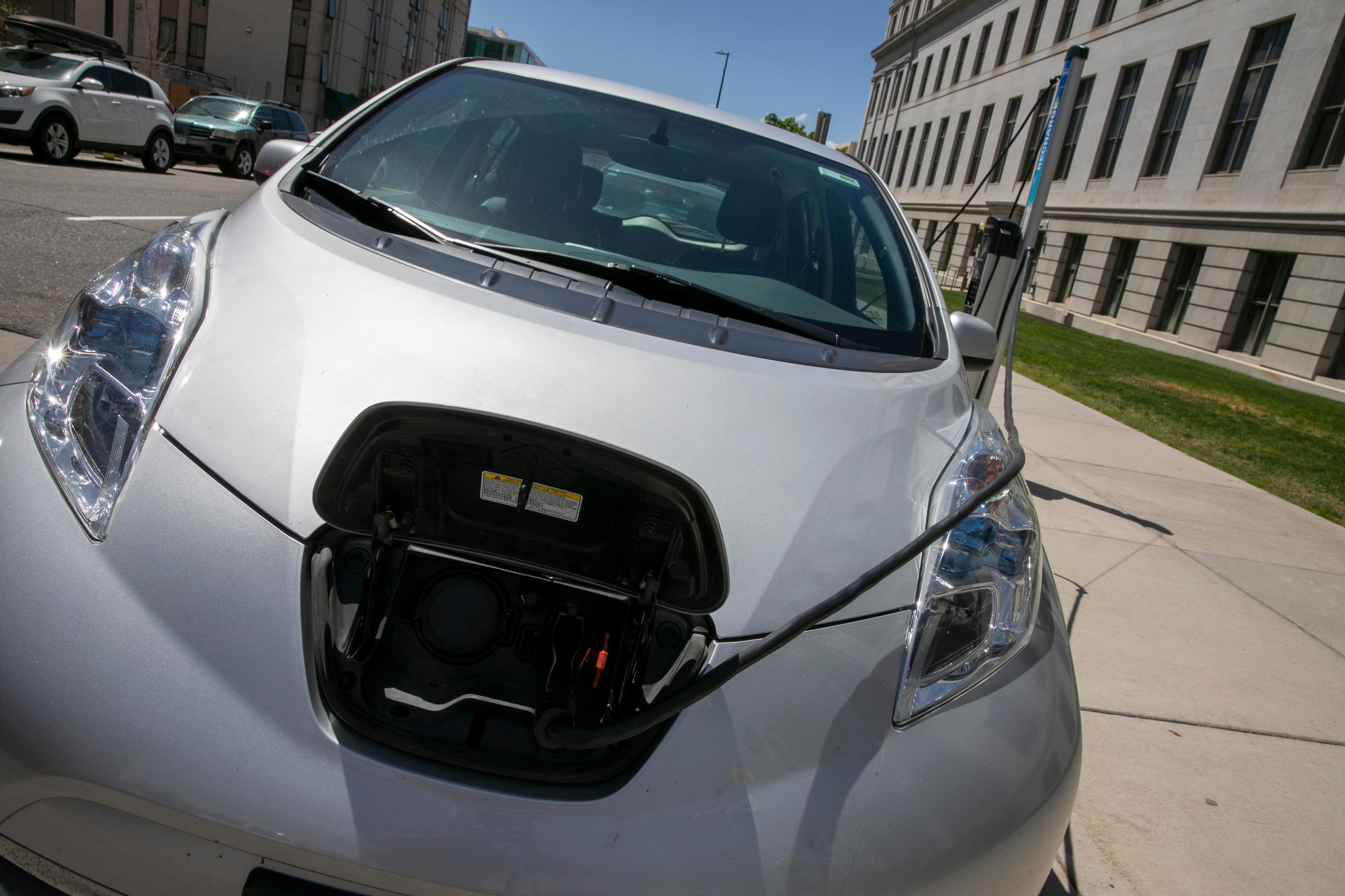
Colorado will help California shape new rules to implement its recently announced goal of banning the sale of new gasoline-power cars and trucks by 2035.
But it’s too early to say if Colorado will follow the same path, Colorado Energy Office Executive Director Will Toor told an audience of transportation professionals convened last week by Louisville-based Commuting Solutions.
The California Air Resources Board will soon begin making rules to move on Gov. Gavin Newsom’s executive order on vehicle sales, a process that could take two years. Colorado officials will join that, Toor said, to “try to make sure that questions about how this might be able to work in other states are considered.”
Widespread adoption of electric vehicles is a key part of Colorado’s climate roadmap, given that transportation is now the state’s largest source of greenhouse gas emissions. Colorado already has a stated goal of 940,000 electric vehicles in the state by 2030.
Since the 1960s, the federal government has given California the authority to set its own fuel-emission standards. In 2019, Colorado adopted California’s existing zero-emission vehicle standard, which decrees that zero- or low-emission vehicles account for nearly 5 percent of all sales by 2023.
Colorado could decide to follow California’s lead again, Toor said. “It's a little early for us to say how we would look at that since the standard hasn't yet been developed,” he said. “We don't know what it's going to look like."
It’s likely that a new Joe Biden administration will set a standard that could be far greener than the existing one set under President Donald Trump. What exactly that looks like will be critical for states like Colorado, Toor said.
“Once there's a federal standard and a California standard, then we'll make a decision,” he said.
It’s possible that California will join with the federal government and develop one standard, said Travis Madsen, transportation program director for the Boulder-based Southwest Energy Efficiency Project. It’s also possible that automakers ramp up production of electric vehicles on their own, making government mandates less important, Madsen said.
“I can imagine that that point might be on the horizon,” he said, pointing to a raft of recently announced electric vehicles from General Motors, Volkswagen and others.
“I think they see the writing on the wall,” he added. “Globally, you can see that a lot of countries are implementing climate policies that are going to squeeze gasoline and diesel out.”
The United Kingdom plans to ban gas-powered vehicles by 2030, joining other European countries with similar timelines like Sweden, Denmark, and Ireland.
Tim Jackson, president and CEO of the Colorado Automobile Dealers Association, also prefers a single national standard. His group has unsuccessfully sued Colorado over its adoption of California’s emission standards.
Jackson noted that, so far, Coloradans haven’t warmed up much to electric vehicles, which he said account for just 3 percent of all new vehicle sales through August 2020. Jackson also worries that another government mandate would infringe on consumer choice.
"That's where the rub is,” Jackson said. “If the consumer can't buy the next new car they want or need, they'll stay in their older, higher-emitting car.”
Consumer behavior could change as the up-front cost of electric vehicles drops and Colorado continues to build out necessary infrastructure across the state. Xcel Energy, the state’s largest utility, wants to spend $130 million on charging stations, for example.
And there’s one more big development coming: new electric sport utility vehicles. SUVs account for just over half of all new vehicle sales in Colorado so far this year, Jackson said. And a flood of new electric models, from both established and relatively new automakers, will soon hit the market.
“They key will be getting consumers to buy them,” Jackson said.








